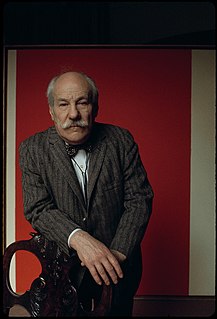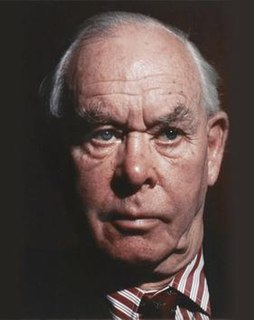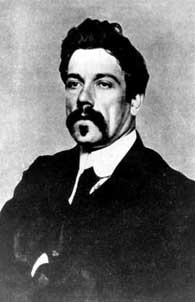A Quote by Joseph Sobran
Man is the only creature disposed to kill huge numbers of members of his own species, and his instrument is usually the state.
Related Quotes
The plague of mankind is the fear and rejection of diversity: monotheism, monarchy, monogamy and, in our age, monomedicine. The belief that there is only one right way to live, only one right way to regulate religious, political, sexual, medical affairs is the root cause of the greatest threat to man: members of his own species, bent on ensuring his salvation, security, and sanity.
Man is the only animal that deals in that atrocity of atrocities War. He is the only one that gathers his brethren about him and goes forth in cold blood and calm pulse to exterminate his kind. He is the only animal that for sordid wages will march out... and help to slaughter strangers of his own species who have done him no harm and with whom he has no quarrel.... And in the intervals between campaigns he washes the blood off his hands and works for the universal brotherhood of man with his mouth.
It requires twenty years for a man to rise from the vegetable state in which he is within his mother's womb, and from the pure animal state which is the lot of his early childhood, to the state when the maturity of reason begins to appear. It has required thirty centuries to learn a little about his structure. It would need eternity to learn something about his soul. It takes an instant to kill him.
I played the vina until my heart turned into the same instrument. Then I offered this instrument to the Divine Musician, the only muscian existing. Since then I have become His flute, and when He chooses He plays His music. The people give me credit for this music which, in reality, is not due to me, but to the Musician who plays his own instrument.
Thus, just as animals of many species, including man, are disposed to respond with fear to sudden movement or a marked change in level of sound or light because to do so has a survival value, so are many species, including man, disposed to respond to separation from a potentially caregiving figure and for the same reasons.
My mother was convinced, and on this head I have retained her firm belief, that to kill animals for the purpose of feeding on their flesh is one of the most deplorable and shameful infirmities of the human state; that it is one of those curses cast upon man either by his fall, or by the obduracy of his own perversity.
The great secret of morals is love; or a going out of our nature, and an identification of ourselves with the beautiful which exists in thought, action, or person, not our own. A man, to be greatly good, must imagine intensely and comprehensively; he must put himself in the place of another and of many others; the pains and pleasure of his species must become his own. The great instrument of moral good is the imagination.
As a man has no right to kill one of his children if it is diseased or insane, so a man who has made the gradual and conscious expression of his personality in literature the aim of his life, has no right to suppress himself any carefully considered work which seemed good enough when it was written. Suppression, if it is deserved, will come rapidly enough from the same causes that suppress the unworthy members of a man's family.
The only distinction between freedom and slavery consists in this: In the former state a man is governed by the laws to which he has given his consent, either in person or by his representative; in the latter, he is governed by the will of another. In the one case, his life and property are his own; in the other, they depend upon the pleasure of his master. It is easy to discern which of these two states is preferable.






































